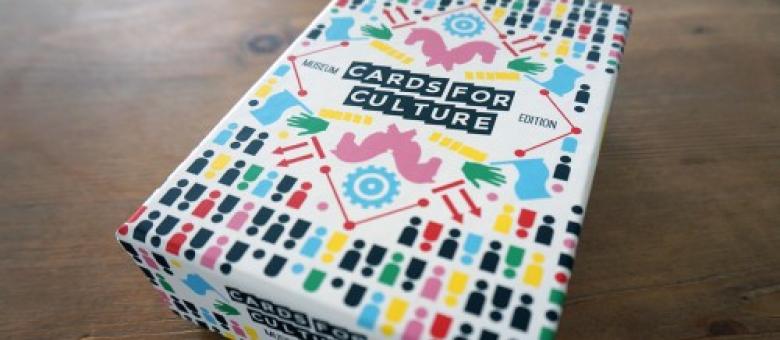
Publikationen

Cards for Culture: Playful strategy development for museums
Cards for Culture – Museum Edition is a playful toolkit with 100 cards that you can use in many different ways in your organisation, for instance to facilitate strategy workshops, design a response to trends and learn from best practices from all over the world. In 1:25 minutes, the Kickstarter video does a good job in explaining the concept and showing the cards:
Now I hear you ask: “If this is a game, how can I win?”
Strictly speaking, it’s not a game but a playful toolkit that makes a difficult topic (strategy development) accessible for anyone. Winning can be defined as developing much more resilient, sustainable and effective strategies for your museum. Much like a traditional deck of cards, Cards for Culture can be used in many different way. We’ve so far tested six ‘games’, each of which has a number of variations. These games can be used to do lots of things, from designing an integrated strategy to testing new project ideas and from team retreats to participatory governance practices.
Each box of Cards for Culture – Museum Edition consists of:
A deck of 64 cards with strategic questions, based around eight themes (story, leadership, audience, organization, community, society, space and assets).
A deck of 16 cards with current trends that are shaping the future of museums.
A deck of 16 cards with inspiration and best practices from around the world.
Four jokers: Relevant risks and threats that could disrupt your museum.
A user manual.
The cards are beautifully designed by Dutch designer Robin Stam and will be produced at very high quality, to ensure their sustained usability in your museum. Our prototypes still look brand new after countless workshops. There’s so much to say about the cards, the sessions you can facilitate with them, their content and the cases and trends, that I’ll be writing more blogs about this in the coming weeks, while the campaign unfolds.
Cards for Culture – Museum Edition is created by Erik Schilp and Jasper Visser and designed by Robin Stam.





